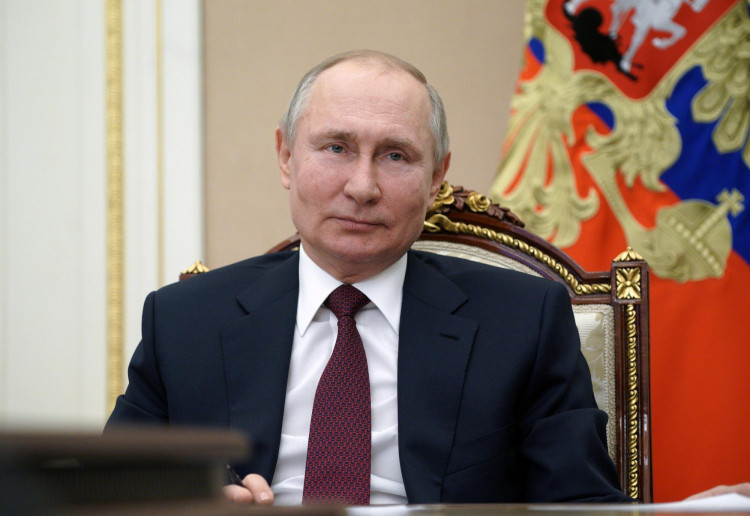Russian President Vladimir Putin has drawn a "nuclear red line" in the ongoing conflict between Russia and Ukraine, warning the United States and its allies that any Western-supplied long-range missiles used by Ukraine to strike deep into Russian territory could provoke a nuclear response. The Russian leader's stark warning comes as Western nations debate providing Ukraine with more advanced military support, raising the stakes in an already volatile conflict.
In a recent meeting of Russia's Security Council, Putin expanded the scenarios under which Russia might use nuclear weapons. His remarks indicated that any large-scale conventional attack on Russian territory, particularly if supported by a nuclear power, could trigger a nuclear response. While no specific countries were named, the context made clear that Putin's comments were directed at the West, particularly the United States and NATO allies, who have supplied Ukraine with advanced military equipment since Russia's invasion in 2022.
"It was a very clear message: 'Don't make a mistake - all these kinds of things may mean nuclear war,'" said Nikolai Sokov, a former Soviet and Russian diplomat, summarizing Putin's statement. This marks a further escalation in Putin's rhetoric, who has repeatedly hinted at the possibility of nuclear retaliation throughout the conflict.
A Calculated Warning or Bluff?
Putin's nuclear threats, however, have been met with skepticism by some Western analysts and officials. Ukrainian officials were quick to dismiss the warnings, with Anton Gerashchenko, a former adviser to Ukraine's Ministry of Internal Affairs, calling Putin's comments "nuclear blackmail" and labeling them as a bluff. Gerashchenko argued that Putin would not follow through with nuclear strikes, as such an action would make him a "complete outcast" on the world stage.
In Washington, U.S. Secretary of State Antony Blinken condemned Putin's rhetoric, calling it "irresponsible" and untimely. He also noted that this was not the first time the Russian president had used nuclear threats to gain a strategic advantage.
Andreas Umland, an analyst at the Swedish Institute of International Affairs, emphasized that Putin's warning could be a psychological tactic to instill fear in Western nations. "This is a psychological PR operation by the Kremlin," Umland said, "designed to scare leaders and voters of countries supporting Ukraine."
Despite these dismissals, experts like Fabian Hoffmann, a defense researcher in Oslo, caution against underestimating Putin's threats. Hoffmann noted that while Russian nuclear use does not appear imminent, the situation could escalate quickly if certain red lines are crossed. He outlined several key indicators, such as the movement of nuclear warheads from storage or the preparation of missile systems, which U.S. intelligence agencies would likely detect.
Lowering the Nuclear Threshold
In contrast to previous statements, Putin's recent comments suggested a lowering of the threshold for nuclear use. His spokesman clarified that the new doctrine allows for nuclear retaliation not only in response to existential threats but also to conventional strikes that threaten Russia's sovereignty. This shift has raised alarms in Western capitals, with some commentators suggesting that Russia is positioning itself to use tactical nuclear weapons in the conflict, particularly if Ukraine begins to strike deep within Russian territory with Western-supplied long-range missiles.
Sergei Markov, a former Kremlin adviser, openly discussed the possibility of Russia deploying tactical nuclear weapons, particularly in response to attacks on key Russian targets or air bases in neighboring countries like Poland or Romania, which might serve as staging grounds for Ukrainian forces.
Western Response and Doubts
While Western officials have voiced concern over Putin's heightened rhetoric, many continue to believe that Russia's nuclear threats are primarily intended to deter further military support for Ukraine. The Kremlin's repeated warnings have yet to provoke a significant shift in NATO's military posture or aid to Kyiv. Indeed, experts like Gustav Gressel from the European Council on Foreign Relations argue that Putin's statements are designed to instill fear in the West and dissuade further involvement in the conflict.
"The renewed nuclear bluster by Russia is a sign of Western weakness," Gressel said, urging the West not to yield to Moscow's intimidation. He noted that, while Putin's nuclear threats are alarming, they are likely a strategic bluff designed to influence Western public opinion and decision-making.
At the same time, U.S. officials have underscored that they are monitoring Russia's military movements closely, particularly any signs of preparations for nuclear strikes. Defense Secretary Lloyd Austin, speaking at a summit in London, highlighted the importance of continued military collaboration with NATO allies, including providing military capabilities to counter any future nuclear threats.
Uncertainty Over Putin's Next Move
Despite assurances from U.S. and NATO officials that they are prepared for any eventuality, the uncertainty surrounding Russia's nuclear doctrine and Putin's intentions continues to cast a shadow over the conflict. Russia's recent military exercises, which simulated the use of tactical nuclear weapons, have added to concerns that Moscow could act on its threats if the war continues to escalate.
Vladimir Avatkov, a member of Russia's Council on International Relations, said the changes to Russia's nuclear doctrine were meant to force Western leaders to rethink their support for Ukraine. "Let them think now," Avatkov said, noting that the new policy was intended to return a sense of fear to the West and deter further involvement.




